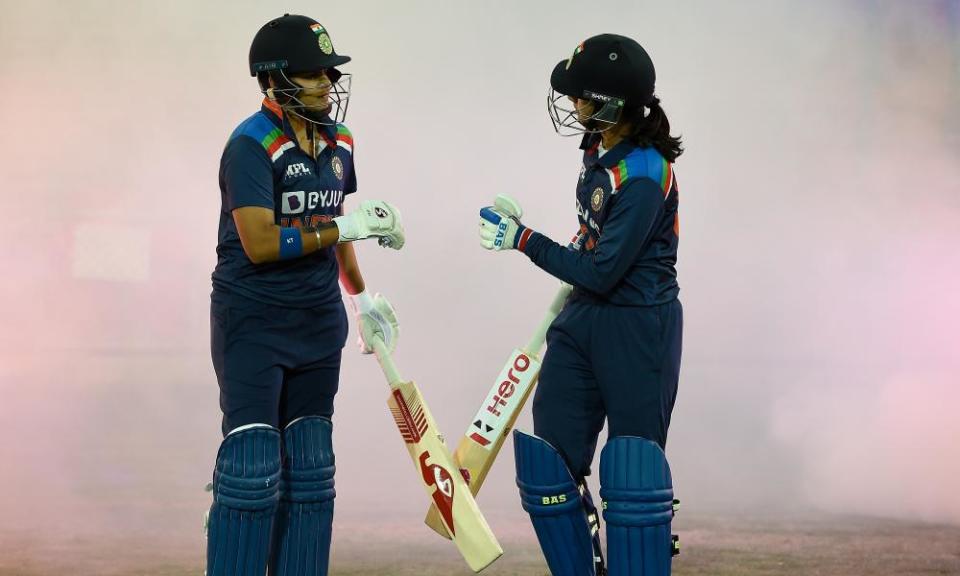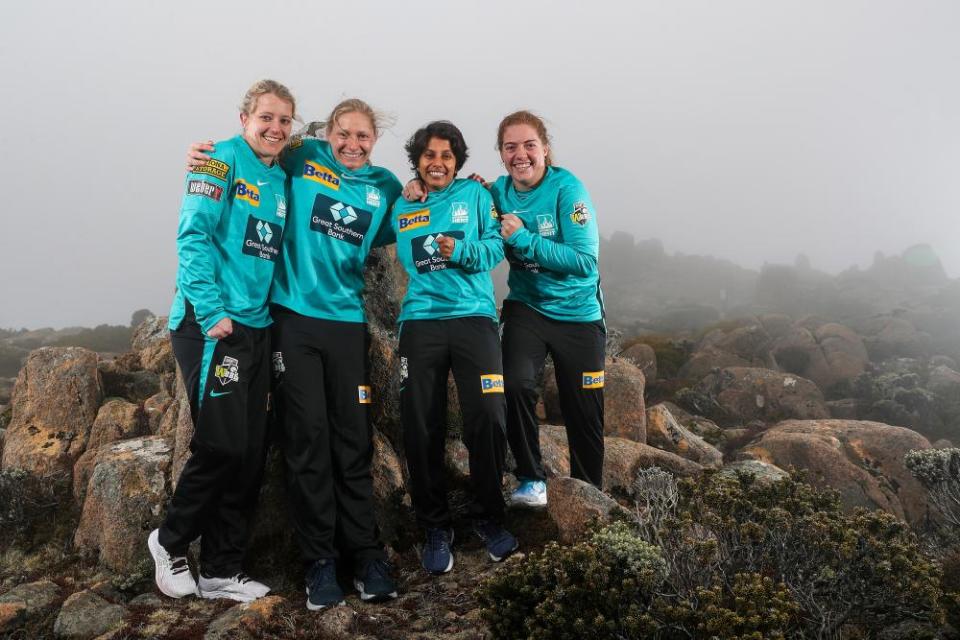Indian contingent promises excitement as Australia gears up for WBBL season seven

When the Women’s Big Bash League fires up on Thursday for its seventh season, there will be a notable change to the previous six. While domestic Twenty20 leagues for men or women anywhere in the world have an international flavour, India’s influence outside its own Premier League is minimal. This year, though, will be the Indian edition, as eight players from the emerging power of women’s cricket suit up for Big Bash sides.
When the competition launched in late 2015 with eight teams to fill, depth of talent was a problem. Topping up rosters from overseas was a partial solution, but most international teams had a standard below Australia’s domestically. Most imports came from England, having been the first country with professional contracts for women. New Zealand was next, for proximity and convenience, and the best of the South Africans were picked off the top. So far the league has featured 18 English players, 13 New Zealanders and nine South Africans, compared to four Caribbean players, two Irish, and one each from Sri Lanka and Pakistan.
Related: Pandemic forces Big Bash League to wait another year for DRS
For India’s part, at first the Board of Cricket Control refused permission for its contracted players to appear at all, applying an IPL regulatory template to women despite them not having an IPL to play in. Even when that barrier was lowered, the first six years saw Veda Krishnamurthy play one season, Smriti Mandhana two, and Harmanpreet Kaur three: a total of three players in six stints, most of which were curtailed by national commitments. Camps and tours overlapped, and in October 2020 the BCCI scheduled a clash thanks to a four-match exhibition tournament to be played during the delayed men’s IPL.
Finally, in the pandemic world of 2021, the timing has come good. England are due to tour Australia in January 2022 for the women’s Ashes, so there is little appeal for frontline players to do an extra bout of quarantine three months earlier. That’s assuming they would have got the required clearances to enter. India, on the other hand, were already in the country for a series against the Australian team, which wrapped up days before the Big Bash.
They’re here, they’re available, and they have nowhere to be next. They’re also part of a group of players that has been an increasing source of excitement. There is a new confidence, a brassiness. Ask Australia or England, who both recently played long series in which this Indian team kept on refusing to go away. Formerly, India were the sort of team that might scrap a low-scoring win on a slow surface, but would be blown away elsewhere. These days, they’re as liable to blow away others, especially with the bat. Aggressive hitting is the approach carried through by a new generation of young and clear-eyed strikers.

Shafali Verma, Richa Ghosh and Jemimah Rodrigues are the core. Two are teenagers, the latter 21. All will feature in the Bash: a word that sums up Verma’s T20 style. In a recent match against Australia she had an innings of 18 that featured three scoring shots. You do the maths. Across her career she scores at close to nine per over, with nearly a third of her career runs in sixes. Yet on her Test debut this year she showed impeccable defence and stamina either side of a few big shots in making 96 and 63.
Verma gets the attention, which happens when you launch pyrotechnics in a national shirt from the age of 15. Ghosh is equally impressive, though – a wicketkeeper with a cool head and a hot blade who made vital runs against Australia, finishing half of her six recent innings unbeaten while still showing the dash and skill to find boundary gaps. Rodrigues looks the most complete player of the three: an off-side stylist with leg-side options who remained unflustered even playing England’s 100-ball format earlier this year.
With India’s early starts to careers, Deepti Sharma and Mandhana are veterans: aged 24 and 25 respectively, they’ve each played over 120 times. They are together at the Sydney Thunder: Mandhana is a classy opening bat, Deepti an off-spinner who can move around the order. Harmanpreet is the genuine veteran: the national T20 captain looked in good touch with the bat in the recent series, and bowls useful darts. She and Rodrigues should add some needed steel to the historically unsuccessful Melbourne Renegades. Ghosh has gone alone to the Hobart Hurricanes.
As for proper spinners, Radha Yadav joins Verma at the Sydney Sixers. The left-armer set an enviable T20 international record by taking at least one wicket for 27 matches in a row. Flying solo at the Brisbane Heat will be Poonam Yadav, that glorious anachronism of a leg-spinner who hangs the ball in the air like a harvest moon, trapping unwary players who try to put it into orbit. A top-quality opponent who combines dancing with power might occasionally take her down, but Poonam will hoover up dozens of WBBL wickets either side of such an occurrence.
Related: Australia beat India in final T20 to end series on a high– as it happened
These eight players will take on one another and the competition at large to the backdrop of another development: adding $400,000 to WBBL fees from a surplus in the pool generated by Australia’s national men and women. Cricket Australia announced this as a 14% pay rise, though whether this was applied proportionally across the range of contracts is not clear. Most reporting has focused on average retainers rising to $24,000, but averages are misleading given that minimum retainers were below $12,000.
Still, for most domestic players, add in match fees and a contract for the 50-over WNCL, and there is a living to be made in domestic women’s cricket. Not something that could be said when the Big Bash began. The change over six years has been rapid. The seventh will see more. Some visitors have become central to the league’s identity: from New Zealand, the power of Sophie Devine, from England, the leadership of Charlotte Edwards, from South Africa, the ferocity and parsimony of Marizanne Kapp. This time, it’s India’s turn.

 Yahoo Sport
Yahoo Sport 




































